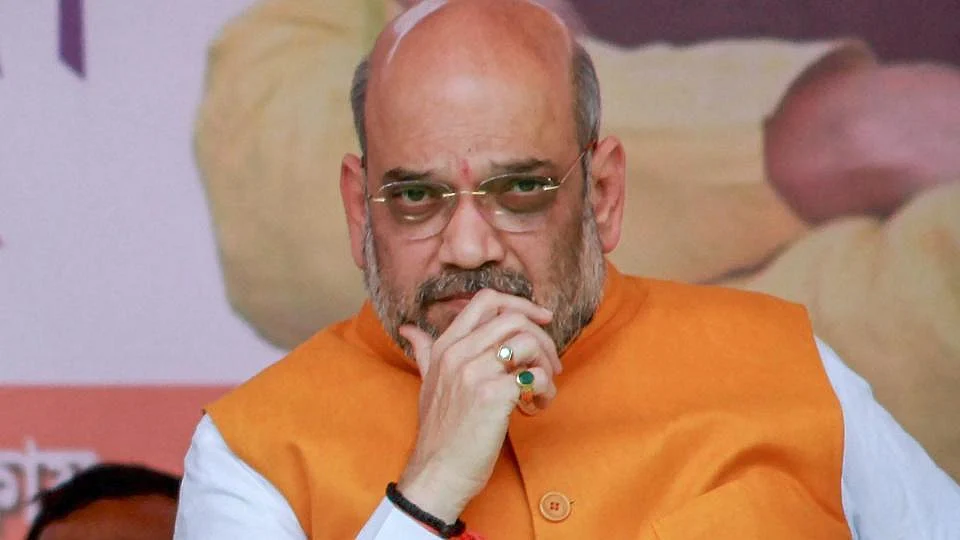Is Amit Shah the ‘heir apparent’ of PM Modi? Kashmir, Rohingyas, Assam to keep Home Minister busy
The million-dollar question is whether Shah will follow a harder line than what Rajnath Singh did with reference to Articles 370 and 35A, Rohingyas, the citizenship bill and other contentious issues

If Narendra Modi had asked Amit Shah his preference for a ministry when the two had conferred for over five hours over the list for the new council of ministers, the BJP president would have undoubtedly asked for home.
Not only is it the No. 2 position in the cabinet, control over this crucial department confers enormous powers on the occupant. And for a man like Shah who obviously likes to exercise visible clout, the home ministry would have been the ideal choice.
For the government, a man like him was needed in the home ministry at a time when Kashmir remains a hot spot and the Maoists are still active in western India and elsewhere.
However, the million-dollar question is whether Shah will follow a harder line than what Rajnath Singh did with reference to, say, the Articles 370 and 35A relating to Kashmir, the Rohingyas and other “termites” or illegal Muslim infiltrators, to use Shah’s word, the citizenship bill and other contentious issues.
Or, whether the responsibility of heading a ministry which once had the BJP’s icon, Vallabhbhai Patel, at the helm make him tread with caution with regard to, say, the use of the colonial-era sedition laws, which the outgoing home minister, Rajnath Singh, wanted to be further stiffened in the wake of the Congress’s proposal for a dilution.
Before the announcement of Shah’s appointment as the home minister, the speculation was that he would be given finance.
The reason apparently was that even more than home, finance was currently in a critical condition with the State Bank of India saying that the growth rate was languishing at 5.9/6.1 per cent. It is also known that unemployment is at a 45-year high.
Before the BJP’s remarkable victory, the general belief, including among some of the party’s supporters, was that it would be difficult for a ruling party to win against the background of a stagnant economy.
The consensus then was that the party would fall short of a majority while the National Democratic Alliance would just be able to cross the finishing line.
Nirmala Sitharaman, therefore, has been given an onerous responsibility. It is obvious that the prime minister was impressed by her performance in the defence ministry. Otherwise, she would not have been given the new assignment.
The defence portfolio, which was hers before she moved to finance, has gone to Rajnath Singh. It might be asked, however, whether Sitharaman could have continued as the defence minister while Rajnath Singh took up finance. But what calculations impel these lateral movements is not always easy to decipher.
Considering, however, that in Modi’s first term, Arun Jaitley held both the finance and defence ministries for some time, it is obvious that the paucity of talent in the BJP’s ranks, which the extra burden on Jaitley demonstrated, has become much less of late.
As a result, the party has virtually been able to take in its stride the literally forced departures of both Jaitley and Sushma Swaraj because of ill health. It is just as well, however, that the vacuum has been filled by the lateral induction of the former foreign secretary, S. Jaishankar, in the external affairs ministry.
Although there have been other bureaucrats who have become ministers like the former Union home secretary, R.K. Singh, the new external affairs minister can be regarded as a special case because of his earlier high profile as an official, who was involved in major events like the Indo-US nuclear deal and the Doklam standoff with China.
His entry shows that the BJP has shed – at least partially – its earlier wariness about people in key positions not having a saffron background. Instead, if the party opens up to the induction of more and more experts into the government, it cannot but have a healthy effect of encouraging an acceptance of liberalism.
In this context, the dropping of two former ministers – Ananth Kumar Hegde of Karnataka and Jayant Sinha of Bihar – is noteworthy considering the controversial words and deeds of both concerning Muslims.
At a time when the prime minister appears intent on reaching out to the Muslims with the addition of a new phrase – sabka vishwas (everyone’s trust) – to the earlier sabka saath, sabka vikas slogan of development for all, the presence of people as ministers who have little hesitation in expressing their jaundiced anti-minority views or garlanding lynch mobs might have been deemed inappropriate.
Sinha may have also paid the price for the “sins” of his father, former BJP member Yashwant Sinha, who has been sharply critical of his former party apart from pursuing the Rafale case in the Supreme Court in the company of another former saffronite, Arun Shourie.
Among others who have lost their place in the ministry is Maneka Gandhi presumably because her and her son, Varun’s relations with the BJP top brass have been strained of late.
Smriti Irani, however, has come back into reckoning because of her storming of the Amethi bastion of the Nehru-Gandhis, where she had a comfortable victory over Rahul Gandhi. Irani has been rewarded with Maneka’s portfolio of women and child development.
Follow us on: Facebook, Twitter, Google News, Instagram
Join our official telegram channel (@nationalherald) and stay updated with the latest headlines